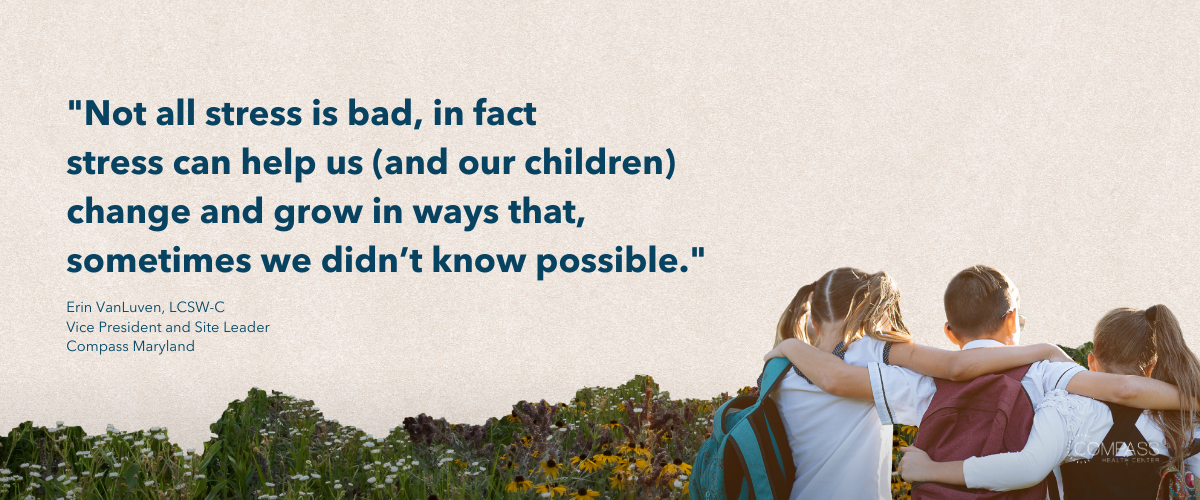As we walk into the month of August, the days are warm and humid, stores are filled with back-to-school supplies and reminders to get the most out of the last few weeks of summer, I find myself reflecting on the endless ‘to-do’s’ of my own life. I am a mom and a professional. A seasoned mental health clinician, balancing multiple worlds all at once. Trying to navigate schedules upon schedules and the health of people on my team, both at home and at work, I am reminded of the joy and excitement along with stress and disorder that may come with transition. Right now, most parents and families are beginning (if they haven’t already) to think about all the things their children may need to begin anew this fall. For some that means pencils, backpacks, expo markers, and notebooks. For parents of transitional-age kids, it could mean laptops, the infamous bed-in-a-bag, campus parking permits, and perhaps cartons of oodles of noodles to supply energy for late-night study sessions.
For others, it may mean all these things along with a whole lot more. Ensuring doctors’ appointments are made for back-to-school medication checks and safety plans are drafted to help navigate difficult emotions that may come with a return to the stress of classrooms and peers. As a mental health clinician with over 15 years of experience in the field, I can affirm that in times like these we often see an increase in need among our patients. Individuals that we have worked with in the past may return for booster sessions and new patients may be reaching out to get connected to treatment. Patients already in care may need increased support to help them navigate the mix of emotions and tasks that are resurfacing in their lives. And, it is inevitable that with transitions comes stress. But does it have to be so chaotic? Not all stress is bad, in fact, stress can help us (and our children) change and grow in ways that, sometimes we didn’t know possible. Coddling our children and doing everything for them is not helpful for anyone. Our job as parents, teachers, community members, and leaders is to help our youth grow into effective and healthy adults- gradually and over time. This means that helping them navigate change and transition is a critical part of our job. To do that, we must model this for them and support them in taking responsibility for what they can as well.
Teaching our youth to take care of their physical, social, and emotional health along with some important, and simple functional tasks can be just what is needed to turn the chaos of a transition into a healthy growth experience. A life tool kit, specifically meant to support physical, social, and emotional wellbeing requires intention and thoughtfulness.
For me, this has always meant going back to the core of my clinical training and pulling out my favorite DBT Skills to get me through. Here are a few tried and true tools that I think everyone should keep handy.
- Cope ahead of time by making a plan, rather than waiting until the last minute. This can do a lot to ease the stress of any transition. Make a list of all the things you need to get and look at your calendar to determine when you can find time to get them. Build in some ‘wiggle room’ so that if you need an extra shopping day because you can’t get it all done at once, you have it.
- Balance sleep and nutrition. Sleep and nutrition are the core of our well-being universe. Eat a balanced diet and get at least 7-8 hours of sleep per night, for adults, and 9-10 for teens and school-age children. Often, during unstructured periods (like summer vacation) we fall out of schedules and routines that are required during the school year. Plan to get back on schedule with your eating and sleeping schedule a couple of weeks ahead of time. This will ensure that, when you do return to a more structured routine, you are not sleep deprived or getting hangry because your natural eating rhythms are off.
- Drink a lot of cold water and/or warm beverages. Staying hydrated is equally as important as getting enough sleep and nutrition. Depending on your mood, cold water or warm beverages such as tea can help you regulate your emotions while also keeping your body well hydrated. As a clinician, I have relied heavily on this skill to help me stay regulated for my clients over the years. Ice cold water can help you regulate your breathing and decrease your heart rate which tells your brain that it is ok to relax. On the other hand, warm beverages such as tea can help to soothe difficult emotions and provide comfort. I can always be found with a large Yeti or Stanley cup of ice water at my desk along with a warm cup of tea so that I am prepared for any moment that presents with my clients.
- Exercise. Ensure that you are getting enough physical activity. Human beings were not meant to be stationary all day long. Bodies were meant to move. Move in ways that bring you joy, whether that be walking, swimming, strength training, golfing, running or whatever it is that makes you feel strong. If exercise is hard for you, build your motivation by thinking about how you will feel when you are done (accomplished, happy, strong?)-NOT how you don’t want to do it beforehand.
- Plan for some FUN. Make sure you build in time to do things you enjoy with your children, parents, friends, or family. This can be something as simple as spending 20 minutes reading each day to building in a family fun night with a movie or a game of putt-putt golf or planning a weekend trip to the beach for some final relaxation together.
- Make sure you know your limits. Setting healthy boundaries for what you need and want in the last few weeks of summer, or anytime really, is important. Be intentional about how and who you spend your time with. Don’t feel obligated to over-extend yourself. You are only one person. It is ok to say “no” if that means you will be able to be more present for yourself or your family in this transition.
- Be Present. Wherever you are, be there fully. Human beings thrive in connection with others. Be present at dinner with your family, set phones aside, and have a device-free hour together when you can. Cut back on-screen time.
- Practice Gratitude. It is really easy to focus on all of the negative going on in life. Even on the most difficult days, there is always something positive to be found. Acknowledge the positive, out loud and on purpose. This will help you find the light, even in difficult moments.
As you are working to build these into your routine, if this is all new for you, please start small. Overhauling your life and practices typically does not lead to long-term success. Human beings are habitual by nature, to build new habits, you should make small changes. Pick 1-2 items on the list and start there. Include your children, family, parents, or friends in them when you can. Practice them intentionally, every day and be willing to give yourself (and others) grace when you or they are not perfect. Doing these things sometimes is better than doing them none of the time. Life is about building mastery and making progress, not perfection.
Finally, think about ways that you can build a support network or support person to help cheerlead you on your journey. Provide praise to yourself and others when you and they follow through on the new skills. Even 1 additional person that can give you kudos and ask you how it's going can make all the difference! If you find that change is particularly challenging for you and your family and you are starting to feel more overwhelmed and anxious than accomplished, just know that you are not alone. Help is available. See below for some helpful resources and additional reading.
Additional Resources:
- Healing, Our Path from Mental Illness to Mental Health, By Thomas R. Insel
- Joyful: The Surprising Power of Ordinary Things to Create Extraordinary Happiness Paperback – June 8, 2021, by Ingrid Fetell Lee
- Compass Blog: Three Ways to Identify Emotions to Help Navigate Your Feelings by Stephanie Clymer, LCSW, CADC, Primary Clinical Therapist, Compass Virtual
- Should you need additional help, please visit our website or give us a call: Compass Health Center







